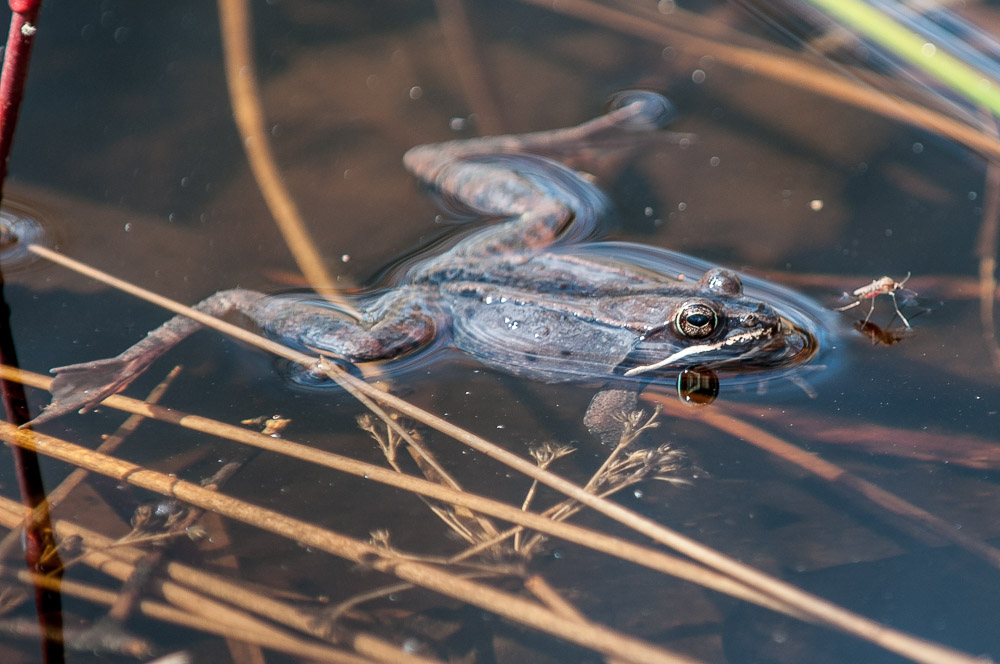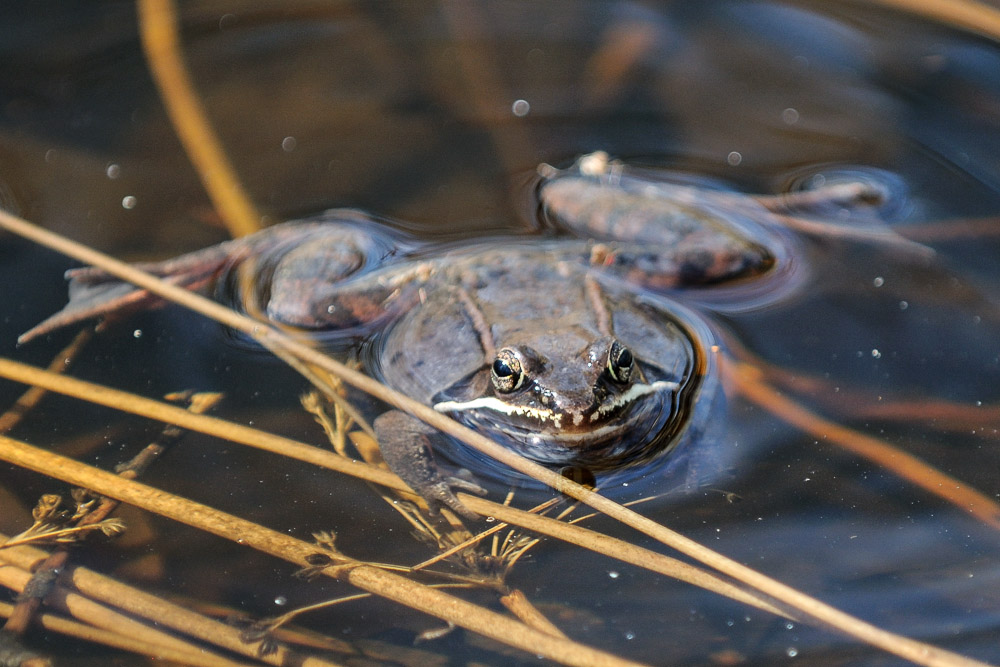Some years ago while we were walking in the woods, I heard quacking coming from a small pond a little way off the trail. Mallards, I though, and brought my binoculars up to take a look. I couldn’t find them, even though mallards are not known for cryptic coloring or a retiring manner. A few days later, the same thing happened in a different spot — phantom mallards. I was starting to get confused; I know my eyesight is not the best, but I can usually rely on my ears to tell me what’s going on around me, and my ears were leading me to invisible ducks.
Eventually my friend Andrew enlightened me. Turns out there’s a creature called a wood frog (Lithobates sylvaticus) that announces its amorous intentions with a quack. My initial frustration at nature’s practical joke has evolved into a great fondness for these little guys (I believe only the guys do the quacking), and now I seek them out. They are usually the first amphibians in Massachusetts to start vocalizing in the spring, slightly ahead of the spring peepers (Pseudacris crucifer), and a very welcome signal that the shivering season is coming to an end.
There’s a large vernal pool in the Chickatawbut section of the Blue Hills Reservation that’s host to a healthy community of wood frogs this year. I first encountered them while we were on a run last weekend, and I went back this weekend to try to record them. From the trail, their racket was almost enough to drown out speech, but as I approached the pond to get away from the background rumble of a nearby street, the frogs got bashful. The pups and I settled in next to the pool, set up the recorder, and silence. After a while I heard a couple of tentative quacks and got ready to record — mallards. It took 45 minutes of motionless waiting to convince the frogs that we were no longer there. The first recording was done with a directional mic as the wood frogs were getting going, so you can make out individual vocalizations. The second recording, with an omnidirectional mic, conveys a bit of the sonic wash they can create as large numbers are vocalizing. There’s a lone peeper singing soprano in the background of the second track.
The frogs can be as hard to spot as the invisible ducks I confused them with; they are woods-colored and hang out three-quarters submerged most of the time. When I set out to photograph them, I failed completely until I figured out that I had to watch for the ripples in the water generated by the quack; the center of the circles led me to the quacker.


Wood frogs’ other claim to fame (besides pointing out my sensory shortcomings) is their strategy for surviving winter: by modifying their internal fluids, they can allow themselves to freeze solid with no ill effects. I found an interesting video featuring a frozen frog, a famous narrator, and no French grocery stores.
Tagged: Blue Hills Reservation, ducks, Mallard, sound recording, vernal pool, Wood frog